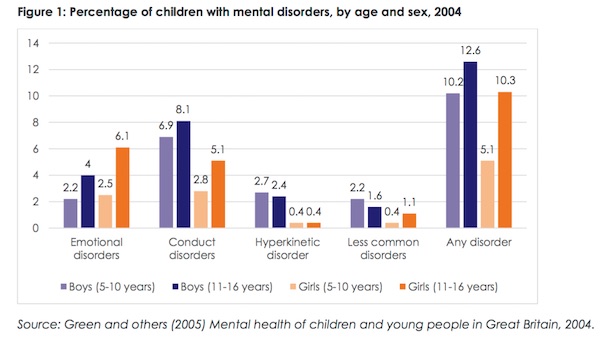A new evidence review suggests that it is how boys behave rather than how they are feeling that society tends to respond to.
The review Gender and Children and Young People's Emotional and Mental Health from the National Children's Bureau shows that mental health problems are more frequently identified in school-age boys than girls, and boys are more likely to be identified as having multiple different difficulties. However, boys and young men appear less likely to access mental health services overall than girls and young women.
This suggests existing services and attitudes are not meeting boys needs. Boys are more likely to have behavioural problems than emotional problems recognised by parents, carers and professionals including teachers. Report author Emily Hamblin says 'mental health needs underpinning behavioural problems in children and young people are under-recognised'. If boys needs are not being met, it is perhaps no wonder that, as the report also makes clear, young men are over-represented in acute services.
Emily Hamblin says: 'There are high levels of unrecognised and unmet emotional and mental health needs among young people at risk of offending or in contact with the youth justice system. Young males are massively over-represented within this system.'
Tracy Herd, deputy CEO of the Men's Health Forum said: 'Society still tends to see boys in terms of how they affect others – as disruptive, badly-behaved or dangerous – rather than as individuals in their own right who may be emotionally-disturbed. If we are ever going to arrive at a situation where boys feels as comfortable asking for help as girls, this attitude simply has to change.'

